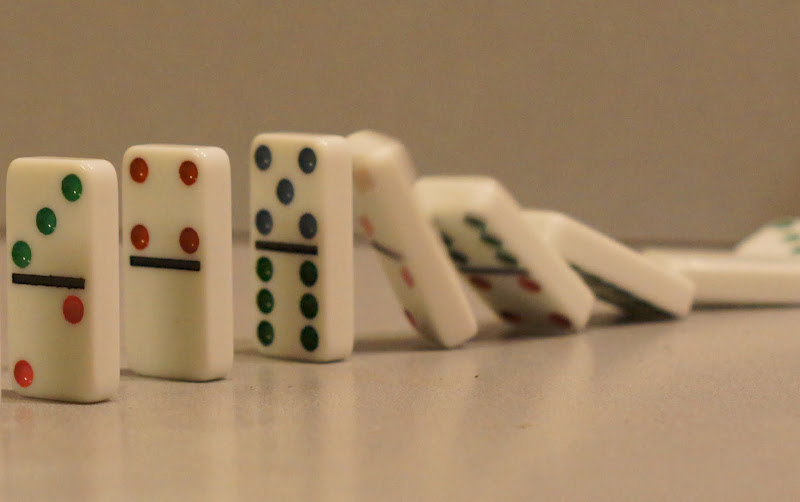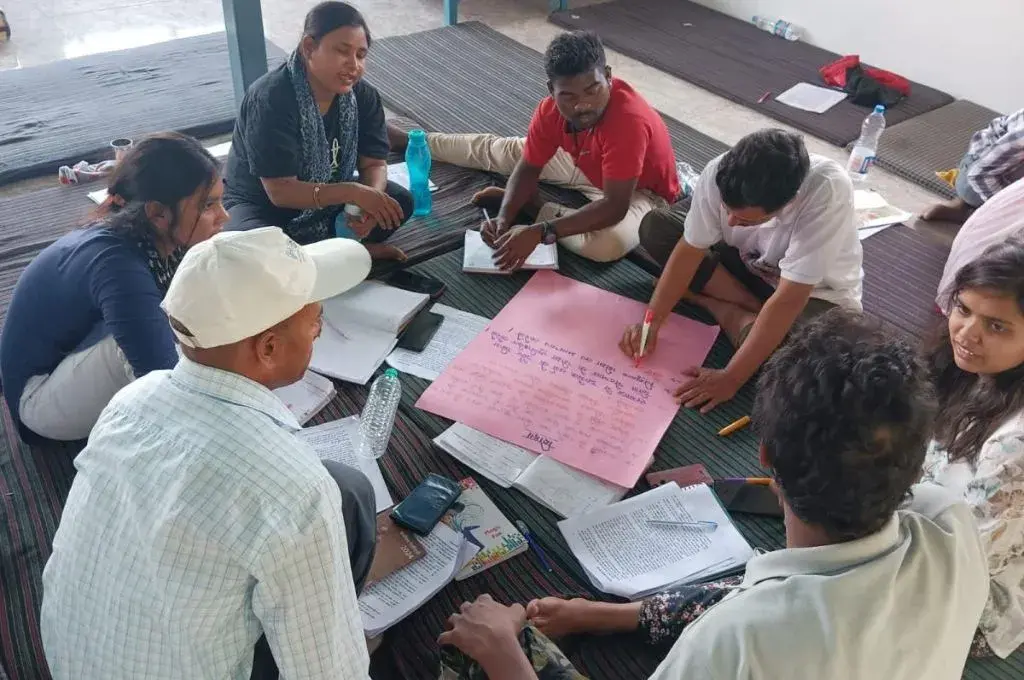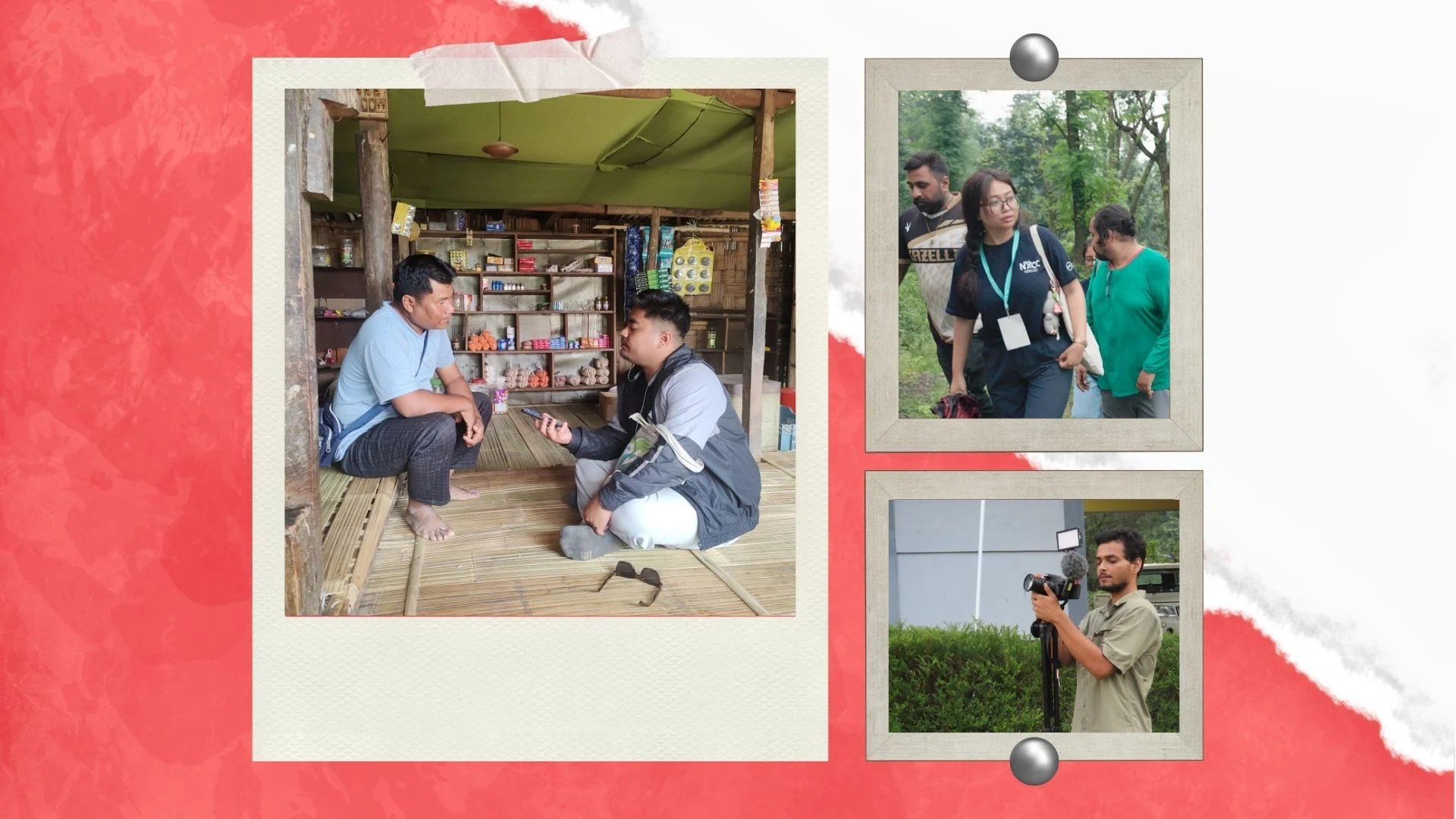The mental health crisis we are seeing in India as a result of COVID-19 isn’t new—it’s just the old problem, in the new normal. Just as with every other aspect of the pandemic, the impact on mental health also intersects with class, caste, gender, age, and many other aspects of people’s identities.
At The YP Foundation, we work closely with young people—activists, youth leaders, and adolescents between the ages of 9-35—working on social change across India. For them, the uncertainty around education and employment, together with the economic impact on families, has been stressful. Additionally, in our rapid assessment of the impact of the lockdown on young people, mental and emotional stress due to being confined in rigid patriarchal spaces or with people who hold contrasting political ideologies came up repeatedly. This is higher for those who had previously been part of alternative spaces. Restricted mobility and heightened family surveillance over the past few months have led to young people all of a sudden losing access to safe spaces that were once available to them.
Related article: Mental health and COVID-19 in India
We need to acknowledge some of the more deep-rooted issues related to work and well-being.
But apart from the pandemic, we need to acknowledge some of the more deep-rooted issues related to work and well-being, particularly for young people.
As I approach this conversation, I want to acknowledge my individual privileges—I am born to an educated, urban family with caste and class privilege; and I currently hold a leadership position in The YP Foundation. All these factors shape my experience of well-being and make me less susceptible to certain stressors. I enter this conversation well-meaning, but I have not trained in, worked on, or been directly affected by mental health-related crises. My perspective is thus informed by my learnings from communities of youth and adolescents supporting each other through small and large crises. It also comes from principles of feminism, community engagement, and training in listening, responding, and working alongside young people to enable leadership. Based on conversations I’ve been a part of, this article aims to outline how to be mindful about young people and well-being at work.
Young people are at odds with the systems they work within
Previously ‘mental health’ in India was largely associated with clinical psychological issues. Today, however, a lot of young people are aware of the concept of well-being and are leading the discourse on actively investing in and nurturing it. In fact, talking about it is becoming normalised, and this conversation is gaining a lot of traction.
A lot of young people are aware of the concept of well-being and are leading the discourse on actively investing in and nurturing it.
Yet for the most part, the institutions, systems, and contexts that govern and shape our lives, were neither designed, nor have adapted to this growing need among young Indians. We thus find ourselves in a situation where societal structures and organisations continue to ignore mental health and well-being despite its impact. Worse yet, it’s often young people who have to work to be heard, taken seriously, and demand proactive steps in this direction.
Why is this the case?
Promoting a culture of efficiency and productivity at the cost of well-being can take a long-term toll on mental health. And young people often feel heavily burdened by this expectation and culture. We have seen that the aspirational and celebrated image of ‘work-as-life’ and immersion in a cause is a common narrative among young leaders and entrepreneurs. This can lead to acceptance—and sometimes glorification—of stress.
Within current work systems, competition and accountability tend to be held up in ways that create anxiety and individual stress. Even when we are watchful of team members’ workloads, we cannot deny the expectation of showing commitment by putting in long hours. This is perhaps because work systems are designed to be accountable to goals and tasks, and not to values. We do not have alternatives to competition-based systems for individual growth learnt from the education system and embedded within organisations. This is now heightened by the pandemic and working from home, where we are constantly available, seldom switching off, and do not have the respite of physical separation between home and the office.

Promoting a culture of efficiency and productivity at the cost of well-being can take a long-term toll on mental health. | Picture courtesy: Pixabay
Workplaces that thrive on insecurity to create a pressure to perform can often be highly competitive, unforgiving, and debilitating for individuals. While this may not be the case at all organisations, our experience tells us that it is the case in some. As we move to ‘professionalise’ the development sector and increase efficiency, insights on building equitable, empathetic, and collaborative workplaces to provide people with a sense of trust have taken a long time coming.
Related article: Mental health at work
Systemic discrimination also makes its way into gossip, ‘jokes’, and bullying that make workplaces toxic and stressful. Specific forms of discrimination and stigma can become triggers and long-term stressors. The conversation around racism within the development sector has been renewed in the context of the #BlackLivesMatter movement. A similar conversation around casteism and other forms of discrimination within the social sector in India is imperative. Queer activists have raised the issue of codes of dress and behaviour as key stressors in the workplace. Similarly, the women’s movement has been conscious of gendered norms, expectations, and bullying at work which is also taking new forms in the current times.
Development organisations are often themselves devoid of diversity. The same narrative of efficiency and resources that create individual stress also become barriers in bringing in specific diversity measures within recruitment and staffing structures within organisations.
Where do we go from here?
How do we move from well-intentioned to well-equipped in creating supportive workplaces, relationships, and ecosystems for young people? Development and activist practice offer some experiential learning on how to engage with diverse contexts and narratives of mental health and wellness. In addition to what has also worked for us organisationally, I go back to these guiding principles:
As activists, leaders, and organisations working on social change, we are always accountable to donors. And understandably, donors often expect a certain level of efficiency, productivity, and rigour. But at the same time, we’re also accountable to ourselves and the people and communities we work with. How do we manage deliverables and well-being simultaneously?
We’re often caught in between the two, but rather than having well-being and deliverables at loggerheads with each other, can we shift our perspective to acknowledge the impact that well-being has on deliverables? Budgetary advocacy experience tells us that promises must be backed up by financial commitment. While at YP Foundation, we are still far from having a well-being budget, flexible funding and capacity building grants have helped us dedicate resources to this consciously and advocate for the same with funders.
The first step in expanding this conversation on mental health and well-being is to make clear and concrete commitments, while involving those who are impacted in the creation of systems, policies, and programmes. If we start viewing well-being as a necessary input that can positively impact our work, we might be able to find more room for this in our budgets.
Related article: Supporting well-being in resource-scarce environments
As a sector, we need to create specific programmes that support development organisations to improve policies, build capacities, and invest in strengthening their own systems.
Including budgets for wellness, staff retreats and organisational development is an essential part of supporting social change. Donor commitments have to go beyond immediate impact on the ground, to making the sector more diverse, reflective, and aware in enabling community-led change.
Donor commitments have to go beyond immediate impact on the ground, to making the sector more diverse, reflective, and aware in enabling community-led change.
A set of diversity and wellness requirements in due diligence cannot be the only way to enforce change though. Support includes investing in repositories of policies and processes that are easily accessible which small organisations are unable to invest to create. This has to be coupled with investments in the ability of small organisations to build systems and bring in growth to access higher funding. This is critical to enabling professionals in growing organisations to cope with increasing stress on their journey. These investments do not have to be in competition with, but rather enhance, on-ground impact.
Among the kinds of innovation that we are pushed to develop in our work, there are precious few to prioritise and ensure well-being of development workers alongside the expansion of development work. We need more innovation to create trust-based systems, employee collaboration, and recognition of what systems need to be broken down so that better ones may be built.
This pandemic is also a moment for us to turn inwards as development workers. There is enough evidence to suggest that the mental health of social impact professionals is in need of dire attention and that gender and age are distinctive factors of mental health issues. It is our prerogative then, to champion the wellness not just of our communities, but of our teams as the community that will lead transformation of social change on the ground.
_
Know more
- Read about the impact of COVID-19 on young people through the Population Foundation of India’s rapid assessment.
- Explore how resource-scarce organisations can support well-being, along with what funders can do.
- Read more about how ‘corporate wellness’ is booming, but mental health in the workplace is ignored.





